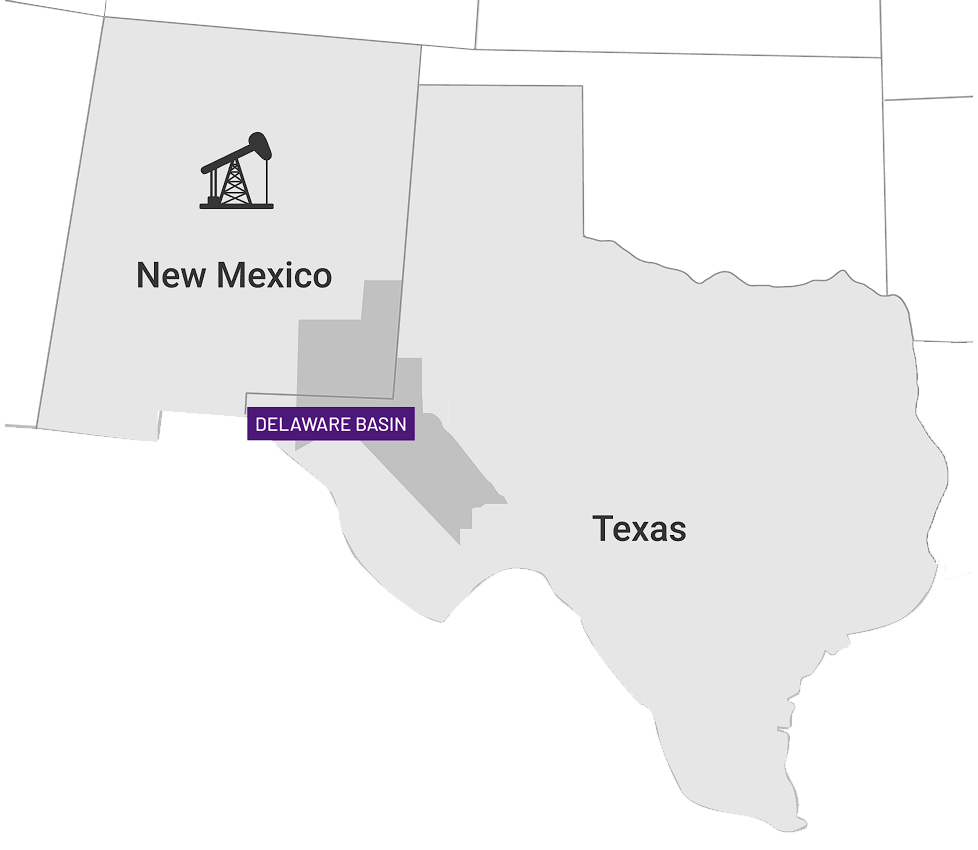There are two types of rights given to landowners in the state; mineral and surface rights. These belong to a landowner who may own the rights to the land except if either has been severed and resources leased.

Understanding the basics of how New Mexico mineral rights operate is essential for land and business owners with mining interests related to oil and gas or other mineral resources. Since 1921 when the first oil/gas well was found in New Mexico, many oil/gas companies and mining companies have set up their sites looking for oil/gas and other minerals in the state. To capitalize on the profits from the mining and extraction of New Mexico’s underground minerals, the state had to form rules which companies and businesses have to abide by to use their minerals. The legislation covers access to lands and payment of royalties, among many other related aspects.
Owning the minerals gives the holder access to minerals found underground such as precious stones, oil and gas, and other minerals. These minerals include every resource found underground except underground water which is not considered as a resource.
If the right to your land has been sold or leased out by a previous owner, then you only own the surface minerals and the rightful owner of the underground minerals does not need your permission to extract the resources underground.
The owner is required to provide compensation if the land suffers any damage during exploration and extraction of, for example, oil/gas resources. Damages will not be overlooked for free.
These give owners access to the above-ground area of any land. They cover any structure on the land and give owners the right to access above-ground assets or to farm on the land.
You can only transfer or sell your surface interests. You cannot lease or sell any other interests regarding the land that do not fall within the land surface rights, especially oil and gas. You don’t have any right to oil and gas or other minerals that don’t fall within the land surface and this may lead to conflict.
Getting general information about who owns minerals in New Mexico requires a sufficient amount of research.
There are public legal records and information that provide relevant information about who owns minerals. These are useful for private buyers. However, even though the records are public, you cannot get access to the information by just completing a form.
You can use a database search tool rather than visiting the State Bureau Office. You can also use an online federal repository site to get thousands of records for a meager fee.
To make a claim on any minerals, follow these steps:
The most common way in which the legal right to minerals is passed on is when an owner splits the ownership of New Mexico mineral rights among their children after the original owner’s death. If you have inherited some form of legal right to minerals, you may need to confirm the legitimacy of your claim before completing any other process. This process is not free.
To take over your inheritance, a title insurance company or an attorney will work to search for information regarding the legitimacy of the land with the federal agency.
After a legitimacy claim, the attorney will work on the process of transfer into your name with the federal agency. This completes the inheritance process for ownership of mineral resources in the state. Any additional process would be explained to you by your lawyer.
When a person sells or leases their ownership of minerals, they are required to pay tax on the profits. You’re required to pay income, ad valorem, and severance tax to the state. For the state of New Mexico, owners pay ad valorem and severance taxes to their respective bodies. Ad Valorem tax is based on the assessed worth of the land in the state.
The rate of ad valorem tax paid is not higher than 10% of the use-value of the minerals, oil and gas, and fair-share value of the lands containing the minerals. This tax becomes active when mining or production of the resources begins on the land. The severance tax is generated from the extraction of these resources in New Mexico. Understand that this tax rate is based on the type of the extracted mineral resources and state government choice. However, the severance tax differs between mineral resources, and whatever the landowner pays can provide a significant revenue source for the state of New Mexico.

The best way to calculate the amount is to examine an existing offer. This is the easiest way to predict what the current worth might be. However, there are certain rules of thumb that we can use to get an idea of the current worth. But remember that what we want to discuss further are just estimates. There can always be higher estimates.
To calculate the worth of a lease, the rule of thumb states that you multiply the bonus by 2x to 3x. So, when you lease your property, you can expect an average price per acre of between 2x and 3x the amount of bonus.
If your property currently doesn’t produce any royalty and you have no active lease, it cannot be worth anything, but that doesn’t make it free of payment. Where the average price of producing mineral rights is $1000, the worth of non-royalty-producing leases will be lower than that, in the range of $0-$250 per acre.
The amount differs for every property because of cash flow and future projected production. These two factors affect the final amount and make it hard to predict the current price. However, an easier way to calculate the amount is to use the average of the last 3-month royalty payment. Divide it by three to give the average monthly amount.

Becoming the owner of minerals in the state follows an easy process. After confirming the legitimacy of the owner on the public database website, your attorney can start evaluating the relevant rights to that property. After evaluation and purchase, you have to go to the New Mexico state land office in that county to register the new name of the owner of the property. You can let Pheasant Energy handle the deal for you as they are a trustworthy broker. Any additional information can be gotten on their website.

If you want to sell mineral rights in Louisiana, it is also not a hard process. However, the sale may not be immediate, given that the property has to undergo analysis and surveillance before it is certified okay for sale, and you are ready to sign the contract.
There are different reasons why people sell their rights and every seller is different. You may want to pay off some debt or finance a new project and all these are valid reasons. Selling your rights will see you receive a huge amount of money upfront including benefits that can attend to these pending issues. You can allow Pheasant Energy to act in your name to sell the rights. They will provide you with the best offer for your royalties and rights. Check out additional information on their website.
To transfer any rights to minerals successfully, follow these steps:

Currently, Pheasant Energy operates in Eddy and Lea counties which are part of the Delaware Basin in the southeast of New Mexico. Pheasant Energy is a well-established broker and they know everything there is to know about minerals within the state. They can help you understand the local market and regulations which govern mineral interests, oil/gas interests. They can also provide general information about buying and selling ownership of minerals within the state of New Mexico.
75+
1000+
100K+
Simple Steps
Give us a call at (817) 251-8282 or use our form in order to take the first step towards getting your offer.